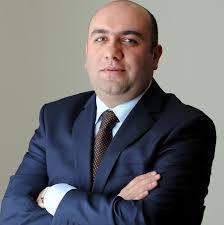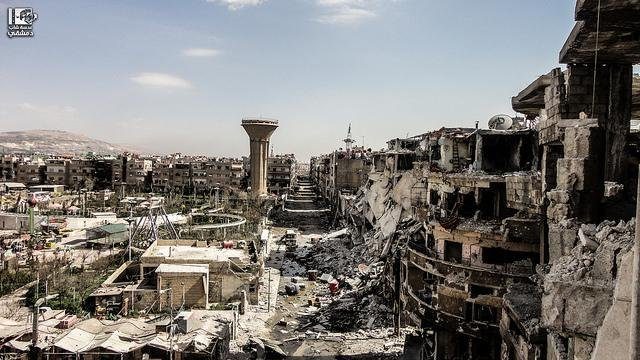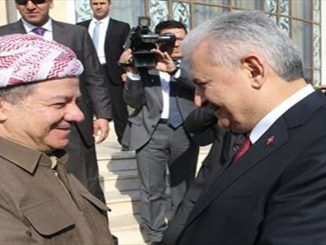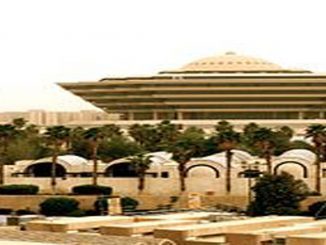
By: Çetiner Çetin *
It has been one year since Russian President Vladimir Putin deployed his air forces in Syria in an attempt to protect Bashar Assad’s remaining state against the opposition. More importantly, however, it has been three years since Putin staged a diplomatic coup in the region because of the U.S. U.S. President Barack Obama did not apply necessary sanctions on the Assad regime and ensured the removal of chemical weapons from Syria as the Assad regime used sarin gas against the opposition near Damascus.
Putin disturbed the power balances that emerged in Europe in the post-Cold War era by seizing Crimea and eastern Ukraine. Although he is considered to be an opportunist by his opponents, he is regarded as a brilliant and idealist leader by his admirers. However, the main question is what are the geopolitical consequences of Putin’s policies.
Russia’s involvement in the Syria chaos has remained a risk since it first intervened in the country. This is one of the reasons why Obama avoids a war as much as possible. Also, there are various reasons why Putin abstains from a war such as recreating Russia’s image as a superpower, relieving the West’s anger at Russia’s intervention in Ukraine and giving a clear message to Washington regarding the unacceptability of a change in the Syrian regime. During last year’s U.N. Security Council meeting, Putin, who is a strong leader in the eyes of the Russians, accused the West of the intrigues in Libya and Iraq, saying that the removal of Muammar Gaddafi and Saddam Hussein created suitable conditions for the emergence of extremist jihadists. The U.S. and the U.K. did not respond to these accusations.
It can be suggested that Russia is consistent in its support to the Damascus and Baghdad administrations. On the other hand, Washington supports Iraqi Prime Minister Haider Al-Abadi and has been insistent on Assad remaining in power since 2011.
Russia is an ally with Iran in Syria. However, the U.S. disturbingly finds itself in the same rank as Iran in Iraq. It supports Al-Abadi and stands against Sunni jihadists and DAESH. This is a result of the U.S.’s invasion of Iraq in 2003 when it placed a Shiite administration in the heart of the Arab world for the first time in centuries. Putin has a single simple strategy to which he seems to be committed.
This is a poker table in the strictest sense of the word. Russia deployed itself at the top of the Iran-administrated Shiite-Arab axis – a region where the world can easily take fire. However, Russia’s hatred of Sunnis might backlash inside of Russia itself. Moreover, Moscow is holding a ticking bomb in Syria. The opposition, which mainly consists of Sunnis, is supported financially by Saudi Arabia and Qatar and politically by Turkey. So, it is stronger than Putin thinks. Although Assad is still in power, the Russians have closely seen that the region administrated by the Assad regime is an embroiled battlefield. The territories which Assad claims to administrate are increasingly shrinking. These territories are indeed the common military exercise field of impregnable warlords, tricksters and militia forces. Moscow has realized that it would not be possible to purify the remaining units of Syria’s security organization of Assad and his buddies without completely eliminating the rest of the system. Certainly, there are also funds which have been removed from the country during the five-year civil war period.
Through this gambling, Putin is intentioned to use the advantage of the perspective which has engulfed the Middle East since September 2013. Obama’s failure to apply a “redline” against the Assad regime’s use of chemical weapons indicates that the U.S. is in a downturn. Now, it is hard to find someone living in the region who thinks that the U.S. is willing and competent to shape what will happen here. On the other hand, Putin is struggling to be close to the U.S.’s traditional allies such as Israel, Saudi Arabia, Turkey and Egypt and it is intensifying these talks with every passing day.
It is said Putin is developing fluent and functional relations with Israeli Prime Minister Benjamin Netanyahu and Deputy Crown Prince of Saudi Arabia Mohammad bin Salman Al Saud. He is resuming talks with Turkish President Recep Tayyip Erdoğan after an eight-month break and trying to leave aside differences. He even offered to hold a mediatory position between Israel and Palestine as the U.S. did in the past. It is likely that it will remain unfulfilled to a large extent; however, it will certainly disturb Obama.
Putin’s track record in the Middle East seems unexpectedly good. Although this success of Russia is short-lived, it has clearly caught the U.S. on the hop through its moves. Here, the issue of concern is to what extent a series of tactical progresses will seem to be actual strategies despite the U.S. A considerable number of people thinks that Russia’s endeavors to simultaneously partner up with the Shiites, Sunnis, Iran and Israel will not be enough to establish a solid and harmonious alliance in the region where it has always been present as a looter.
A new era lies ahead of G20
Turkish, Russian and Chinese leaders stood out among Western leaders who are falling into a decline. Egypt’s coup-maker President Abdel Fattah el-Sisi attracted attention as he tried to be seen by Obama for several minutes during the G20 Summit like a primary school student who tries to be appreciated by his teacher. This footage showed el-Sisi’s importance and prestige has ended in the eyes of the West.
There was great interest in Chinese President Xi Jinping, as China, the host country, has a growth rate of around 7 percent in a time when the global economy is experiencing a slowdown. Two other leaders, Erdoğan and Putin were also the leaders who attracted great attention during the G20 Hangzhou Summit which sought solutions to the global slowdown.
The two leaders who are in the heart of critical crises such as Syria and Ukraine held many talks. Their aim was not only to display courtesy and hold superficial talks. Erdoğan and Putin, who are greatly criticized in the West, made a rapid return to the international stage in Hangzhou, and so to speak, the meetings took place in the axis of the two leaders.
El-Sisi even waited leaders to see him and shake hands with him. This was because the West and the U.S. were quite complainant that el-Sisi failed to bring a normalization process to Egypt. Aware that the country’s economy might burst anytime, the West and the U.S. preferred to give a cold shoulder as if they foresaw a second coup in Egypt in spring.
Putin was avoided like the plague during the G20 Brisbane Summit in Australia two years ago as a passenger plane of Malaysia Airlines was downed by pro-Russian Ukrainian rebels in Ukraine. His isolation started to be broken during the G20 Antalya Summit last year. However, after the U.S. ruined everything in Syria during the Syria crisis, Kremlin’s strong man emerged as an inevitable addressee, so much so that he signed an agreement with the Saudi administration, which is the U.S.’s natural ally in the region, on oil production despite having different opinions about Assad’s position. Although he could not reach an agreement with the U.S. on the Syria crisis, Putin’s utterance of Obama’s “sincerity” in the resolution of the crisis at a press conference was surprising. In other words, he gave the message that Russia outweighs the U.S. with respect to the Syria issue.
Things were even more different for Erdoğan. For the first time, Ankara could discuss its positon and perspective of Syria with the West and the U.S. in such a strong fashion. What was even more important, however, Erdoğan was the center of attention of all leaders with greater self-confidence as he came out more strongly from the foreign-backed July 15 coup attempt through the support of the public who resisted tanks and guns in the streets.
An old friend of mine who is a French diplomat said Erdoğan seems very strong as he survived the coup attempt and has become involved in the Syria battlefield, adding, “This summit was Erdoğan’s playoff. Everyone wanted to meet him. In sum, European leaders offered to meet him, and Erdoğan was the decision maker.”
Although the French presidency was striving to reserve a slightly larger room for a press conference than China planned, a giant conference room was allocated for Erdoğan. The Hangzhou Summit has been the first largest visit that Erdoğan paid to a foreign country after the failed coup attempt. Erdoğan upheld his project of establishing a buffer zone in northern Syria, a proposal which he made during last year’s G20 Antalya Summit. Erdoğan made this move as he takes strength from the Turkish troops’ operation in Syria which seems to receive Russia’s approval even if it is not overt. This time, he seemed to take strength from “the new beginning” in the Turkish-Russian relations. Erdoğan and Putin’s pose during the photo shooting of all G20 leaders and Obama’s wondering eyes were like a message indicating that there are many things that Turkey will say in the new Middle East process and will not say “yes” to anything that the U.S. says in the region.
As opposed to Erdoğan, Putin and Xi; many European and Asian leaders are coming to the end of their term in the rule. Obama will retire from office four months later. French President Francois Hollande and South Korean President Park Geun-hye will retire from office in May 2017 and December 2017, respectively, while a delicate election period is lying ahead of German Chancellor Angela Merkel in September. Let us keep this significant information at the back of our minds in terms of continuity in the countries’ policies.
May the aid al-adha bring peace and tranquility to the whole Muslim world.
*Çetiner Çetin is a Turkish journalist. He wrote this article exclusively for the Middle East Observer on Tuesday, Sept. 13, 2016.



